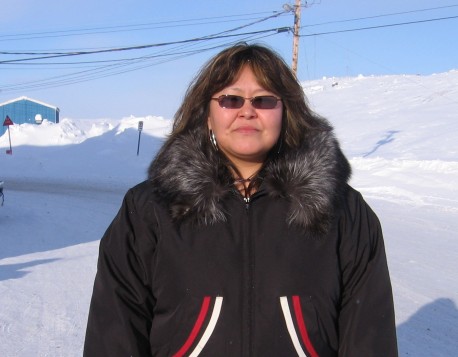Inuit language celebration underway in Nunavut, Canada

An Inuit Language celebration is now underway in Canada’s eastern Arctic territory of Nunavut.
The annual event is held to promote and encourage the use of the Inuit language across the territory.
“Our language reflects the essence of who we are,” said Languages Commissioner Sandra Inutiq in a news release. “It is important we continue to learn it, use it and to remind ourselves of the importance of our language by celebrating it”
This year, the event runs February 17-28.
Inuit Circumpolar Council president on the importance of preserving the Inuit language
The big picture
Though the Inuit language, like many of Canada’s First Nations languages, remains under threat, it is still among the strongest.
In Canada’s 2011 census data on Aboriginal languages, Inuit dialects came in second among the top-three reported Aboriginal language families with 35,500 people.
Of those, 34,110 people reported Inuktitut as their mother tongue. The majority of those people lived Canada’s eastern Arctic territory of Nunavut or in Canada’s predominantly French-speaking province of Quebec.
(The number one group was the Algonquian languages reported by 144,015. The Athapaskan languages came in third with 20,700 speakers.)

Inuit language Resources from across the ArcticCanada:
Tusaalanga, An online Inuktitut learning program
Greenland:
Greenlandic – English Dictionary, Greenland Language Secretariat
Alaska:
Losing their Words: Can a pan-Inuit dialect help preserve the Inuit language in the Arctic
Related Links:
Uniting Voices:Inuit Language in Transition, Eye on the Arctic
Cheers for Alaska native language bill, Alaska Dispatch



